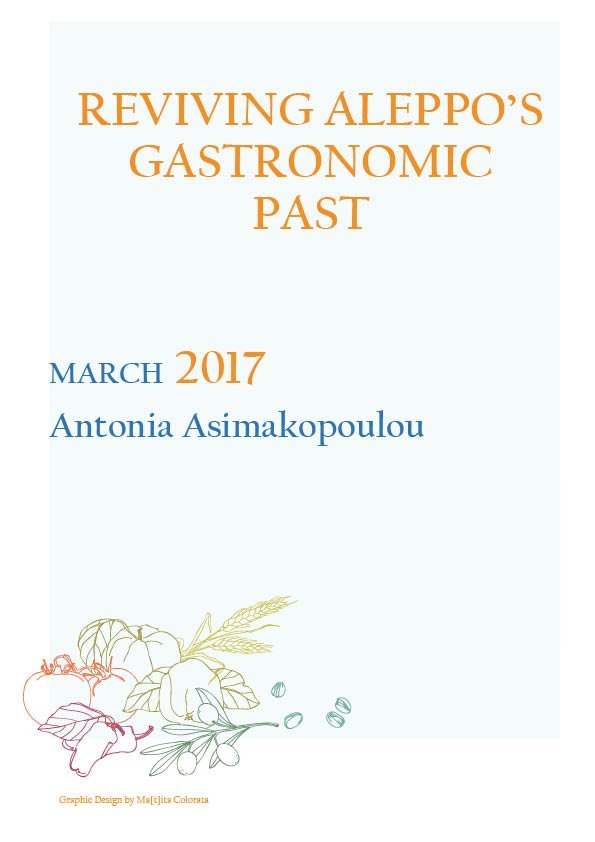SUMMARY
Aleppo’s history as a trading city at the heart of a web of links around the world and its location in the most fertile area of Syria created the most sophisticated cuisine in the Levant. A long history, a diverse population, wealth and a great range of ingredients meant the city was a center of Middle Eastern gastronomy. War has shattered that. Now the remaining population struggles to feed itself and the knowledge and customs have been dispersed along with the people. Bringing back Aleppo’s food culture after the war will be central to restoring not just its economy but also identity and confidence.
Food in Aleppo faces a number of acute threats. War has destroyed the food economy and the population is now heavily dependent on aid. The diversity and wealth of the city has been massively reduced. Restaurant culture and celebrations, aspects of life that are essential for the maintenance of a lively food culture, have mostly disappeared or been dispersed. Beyond that, the area around Aleppo has seen a decade of worsening water stress and rising temperatures. Crops that were a distinctive part of the cuisine, from Aleppo pepper to pistachios, may be under threat from climate change as well as conflict.
With the war in its current state it is hard to imagine any future for Aleppo but peace will eventually return. When it does, rebuilding the food sector is a vital step. Many aspects of it will have changed from farming to distribution to restaurants but given the economic opportunities and the centrality of food to life and culture, it will return quite quickly. What will also be important is to ensure that the richer food culture recovers to maintain the identity of the city, eventually bring back tourism and to support the large numbers of people employed in this area.
Among the ideas explored by this paper are plans to revive the Syrian Academy of Gastronomy as a center for the understanding and celebration of food as well as bringing back food festivals and other celebrations. A local Slow Food Movement could boost the promotion of this key aspect of intangible culture and help with the redevelopment of tourism. Developing rural agritourism north of the city also holds promise.
Knowledge needs to be preserved and passed down to future generations. A new museum of Aleppian cuisine would ensure that people know about the richness of their heritage in this area and how the diversity of the city contributed to that wealth.
To download the full report, please click here.
 The Aleppo Project
The Aleppo Project
Join the conversation
You must be logged in to post a comment.